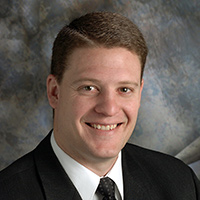Winning Poker Tactics Can Be Used in Investing
Take it from a real card pro: The same skills that help you clean up at 7 Card Stud also can pay off in your portfolio.


Profit and prosper with the best of Kiplinger's advice on investing, taxes, retirement, personal finance and much more. Delivered daily. Enter your email in the box and click Sign Me Up.
You are now subscribed
Your newsletter sign-up was successful
Want to add more newsletters?

Delivered daily
Kiplinger Today
Profit and prosper with the best of Kiplinger's advice on investing, taxes, retirement, personal finance and much more delivered daily. Smart money moves start here.

Sent five days a week
Kiplinger A Step Ahead
Get practical help to make better financial decisions in your everyday life, from spending to savings on top deals.

Delivered daily
Kiplinger Closing Bell
Get today's biggest financial and investing headlines delivered to your inbox every day the U.S. stock market is open.

Sent twice a week
Kiplinger Adviser Intel
Financial pros across the country share best practices and fresh tactics to preserve and grow your wealth.

Delivered weekly
Kiplinger Tax Tips
Trim your federal and state tax bills with practical tax-planning and tax-cutting strategies.

Sent twice a week
Kiplinger Retirement Tips
Your twice-a-week guide to planning and enjoying a financially secure and richly rewarding retirement

Sent bimonthly.
Kiplinger Adviser Angle
Insights for advisers, wealth managers and other financial professionals.

Sent twice a week
Kiplinger Investing Weekly
Your twice-a-week roundup of promising stocks, funds, companies and industries you should consider, ones you should avoid, and why.

Sent weekly for six weeks
Kiplinger Invest for Retirement
Your step-by-step six-part series on how to invest for retirement, from devising a successful strategy to exactly which investments to choose.
One good way to think about managing your money is comparing it to playing poker, which is increasingly becoming one of America’s favorite pastimes.
At first glance, poker and investing do not seem to have much in common. Wall Street requires a far different dress code than most poker tables, for example. But, as a longtime investment adviser who has won a World Series of Poker circuit event, I can assure you the skills you develop at the poker table can come in handy when it comes to growing your portfolio.
Party Poker, an online poker card room, compiled a list of the top attributes needed to be a successful poker player, and plenty of them will sound familiar to anyone who knows about investing. Going through that list, it’s striking how much winning poker players and successful investors rely on the same skills and attributes as they strive to take home more of the pot.
From just $107.88 $24.99 for Kiplinger Personal Finance
Become a smarter, better informed investor. Subscribe from just $107.88 $24.99, plus get up to 4 Special Issues

Sign up for Kiplinger’s Free Newsletters
Profit and prosper with the best of expert advice on investing, taxes, retirement, personal finance and more - straight to your e-mail.
Profit and prosper with the best of expert advice - straight to your e-mail.
Staying in the game
Money management, for example, is important at the poker table and in building a strong portfolio. A good financial professional needs a strategy to pick markets while never getting overexposed or taking too much risk for the clients they work with. The same holds true with poker players, who never want to have too much money on the table. Just as a knowledgeable financial professional does, a skilled poker player always keeps tabs on how much they have won and how much they have lost and, just as important, has a realistic take on potential gains and losses.
Be choosy in your hand selection
If they want to win more than they lose, poker players need to know how to manage their hand: what they have been dealt, what cards they want to lose, what cards they need to win. Almost no one is ever dealt a perfect hand. We have to play it skillfully to increase our odds for winning. The same holds true for financial professionals and their clients. They have to be picky about which strategies and financial vehicles to employ, so they have to do their homework and stay informed about market trends.
Numbers are the name of the game
Both poker players and individuals need to know the numbers as they gauge what cards to play or which financial decisions to make. They need to keep track of odds and always have the probabilities associated with success and failure in their minds. Poker players keep the odds in mind as they try to figure out which cards their opponents are looking for and what they need to win the hand. Of course, individuals do the same thing as they calculate the risks associated with some financial vehicles and how much risk they are comfortable with.
Be an eagle-eyed observer of human nature
The best poker players are almost always the best people watchers. They have to be as they attempt to read their opponents to see if they are bluffing and how they handle a good hand. This attribute crosses over into the stock market. Just like a poker player, a good financial professional needs to understand human nature and know how it can affect financial decisions.
The similarities between playing poker and investing in the market go far deeper:
- Poker players need to know when to be aggressive to knock an opponent out of the game, but they also know when to be careful. Financial professionals do something very similar. They know when to get aggressive when it comes to the market, but they also know when to reel it in and focus more on preservation. Regardless of whether you have a seat at the card table or the stock exchange, you have to know when to start throwing more chips in the pile and when to hold back.
- A shrewd poker player never plays the same hand twice in a row. They change their styles up, especially when they’re in a lengthy game or tournament. Similarly, every financial professional knows that diversification is important to expanding or helping preserve your portfolio.
It’s amazing how often Party Poker’s list of attributes of great poker players line up with common attributes successful investor. The same game plan that can lead you to win a big at the poker table can be used to claim even higher stakes: a more secure financial future.
Kevin Derby contributed to this article.
Investment Advisory Services offered through Global Financial Private Capital, LLC, an SEC Registered Investment Advisor. SEC registration does not imply any certain level of skill or training.
Profit and prosper with the best of Kiplinger's advice on investing, taxes, retirement, personal finance and much more. Delivered daily. Enter your email in the box and click Sign Me Up.

Ryan Krauss is president and CEO of U.S. Central Financial Group. He has been in the insurance business for 17 years and added investment advisory services in 2013. Ryan believes in advising his clients the same way he would advise his own family, which creates lasting client relationships and many referrals.
-
 How Much It Costs to Host a Super Bowl Party in 2026
How Much It Costs to Host a Super Bowl Party in 2026Hosting a Super Bowl party in 2026 could cost you. Here's a breakdown of food, drink and entertainment costs — plus ways to save.
-
 3 Reasons to Use a 5-Year CD As You Approach Retirement
3 Reasons to Use a 5-Year CD As You Approach RetirementA five-year CD can help you reach other milestones as you approach retirement.
-
 Your Adult Kids Are Doing Fine. Is It Time To Spend Some of Their Inheritance?
Your Adult Kids Are Doing Fine. Is It Time To Spend Some of Their Inheritance?If your kids are successful, do they need an inheritance? Ask yourself these four questions before passing down another dollar.
-
 The 4 Estate Planning Documents Every High-Net-Worth Family Needs (Not Just a Will)
The 4 Estate Planning Documents Every High-Net-Worth Family Needs (Not Just a Will)The key to successful estate planning for HNW families isn't just drafting these four documents, but ensuring they're current and immediately accessible.
-
 Love and Legacy: What Couples Rarely Talk About (But Should)
Love and Legacy: What Couples Rarely Talk About (But Should)Couples who talk openly about finances, including estate planning, are more likely to head into retirement joyfully. How can you get the conversation going?
-
 How to Get the Fair Value for Your Shares When You Are in the Minority Vote on a Sale of Substantially All Corporate Assets
How to Get the Fair Value for Your Shares When You Are in the Minority Vote on a Sale of Substantially All Corporate AssetsWhen a sale of substantially all corporate assets is approved by majority vote, shareholders on the losing side of the vote should understand their rights.
-
 How to Add a Pet Trust to Your Estate Plan: Don't Leave Your Best Friend to Chance
How to Add a Pet Trust to Your Estate Plan: Don't Leave Your Best Friend to ChanceAdding a pet trust to your estate plan can ensure your pets are properly looked after when you're no longer able to care for them. This is how to go about it.
-
 Want to Avoid Leaving Chaos in Your Wake? Don't Leave Behind an Outdated Estate Plan
Want to Avoid Leaving Chaos in Your Wake? Don't Leave Behind an Outdated Estate PlanAn outdated or incomplete estate plan could cause confusion for those handling your affairs at a difficult time. This guide highlights what to update and when.
-
 I'm a Financial Adviser: This Is Why I Became an Advocate for Fee-Only Financial Advice
I'm a Financial Adviser: This Is Why I Became an Advocate for Fee-Only Financial AdviceCan financial advisers who earn commissions on product sales give clients the best advice? For one professional, changing track was the clear choice.
-
 I Met With 100-Plus Advisers to Develop This Road Map for Adopting AI
I Met With 100-Plus Advisers to Develop This Road Map for Adopting AIFor financial advisers eager to embrace AI but unsure where to start, this road map will help you integrate the right tools and safeguards into your work.
-
 The Referral Revolution: How to Grow Your Business With Trust
The Referral Revolution: How to Grow Your Business With TrustYou can attract ideal clients by focusing on value and leveraging your current relationships to create a referral-based practice.